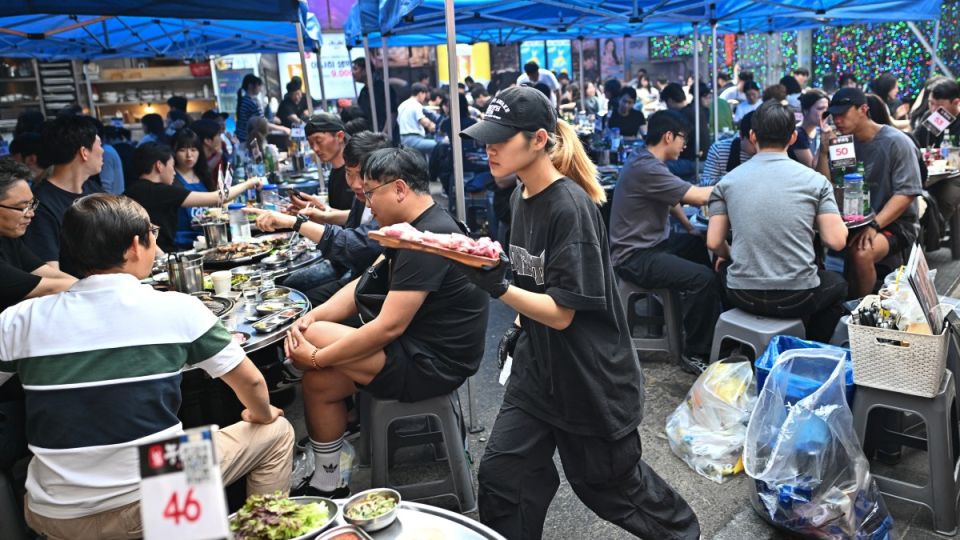November 14, 2025
SEOUL – As young Koreans increasingly avoid part-time service jobs, international students are filling the gap, working in restaurants across South Korea to keep kitchens running and dining rooms staffed.
Despite wages that can reach 15,000 won per hour ($10.20), employers say it’s harder than ever to hire local workers for roles like waiting tables or assisting in kitchens. Instead, part-time job listings are drawing students from abroad, many of whom are juggling their studies with shifts in cafes, eateries, and barbecue joints.
Recent figures from the Ministry of Data and Statistics show a notable rise in foreign workers in the food and hospitality sectors, climbing from 107,000 in 2022 to 131,000 in 2024, up 22.4 percent.
Over the same period, the number of D-2 and D-4 student visa holders also jumped by more than a third, reaching 263,000, according to the Ministry of Justice.
A key factor is the flexibility of student visa rules, under which working time restrictions were eased in 2023. International undergraduates with intermediate Korean are now allowed to work up to 25 weekday hours per week during academic terms, and more on weekends.
And while foreign workers under South Korea’s Employment Permit System face complex hiring requirements and long processing times, students have fewer conditions. This makes them an appealing option for businesses that need part-time staff with short notice.
According to a June survey by the job platform Alba Cheonguk, nearly 38 percent of small business owners said they had hired or were currently employing foreign students. Many cited dependable attendance and willingness to work irregular hours, although some also mentioned difficulties with communication and visa compliance.
But not all arrangements stay within the rules. Local media have reported that some students exceed legal work-hour limits and are paid in cash for unreported shifts. One Seoul restaurant owner said the payroll reflects only the official maximum, while additional hours are handled informally.
The surge in international student labor is also changing the makeup of some universities. At a university in southern Gyeonggi Province, international enrollment increased tenfold in two years. Merchants nearby say it’s common for students to attend just enough classes to maintain visa status, then head straight to jobs in the surrounding neighborhoods.


